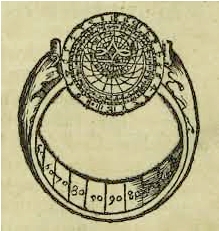Once a city and now a village, Michaël Iancu describes in his book Les Juifs de Montpellier et des terrains d’Oc the contribution of Lattes to the development of Montpellier in the Middle Ages and its importance in the region’s Jewish cultural and intellectual heritage. The surname “de Lattes” was frequent at the time among the Jews and probably carried because of their origin in this city.

Among them, Isaac de Lattes who lived in the 14th century. A Barcelona-trained physician, he is the author of a Treatise on the Stomach and a treatise on fever entitled Treatise of Isaac de Lattes. In 1372, he wrote the Kyriat Sefer (City of the Book) which presents the Languedocian Jewish authors of the Middle Ages. Undergoing this troubling period of exiles and sometimes authorized returns during the 14th century, Isaac wishes to pay tribute to these great figures and to signify their contribution to the region in its intellectual and scientific development.
Isaac de Lattes of course refers to ibn Tibbon father and son, to Meshoullam and his descendants, as well as other local figures, but also connections between Languedoc and Spain. A work that ends with these disturbing words: “Finally we come to the year 1372, the time of great wars and massacres, when, of course, schools were interrupted.” Books and the will of sharing padlocked by the sword and geopolitical wills.

Bonet de Lattes (1450-1510), who was born in Aix, became a great physician in Rome, in the service of three popes. Author of an Astronomical Ring in Latin, the famous doctor will be cited by Rabelais. His son, Immanuel de Lattes, would also become a doctor and return to the family’s homelands by practicing in Avignon.